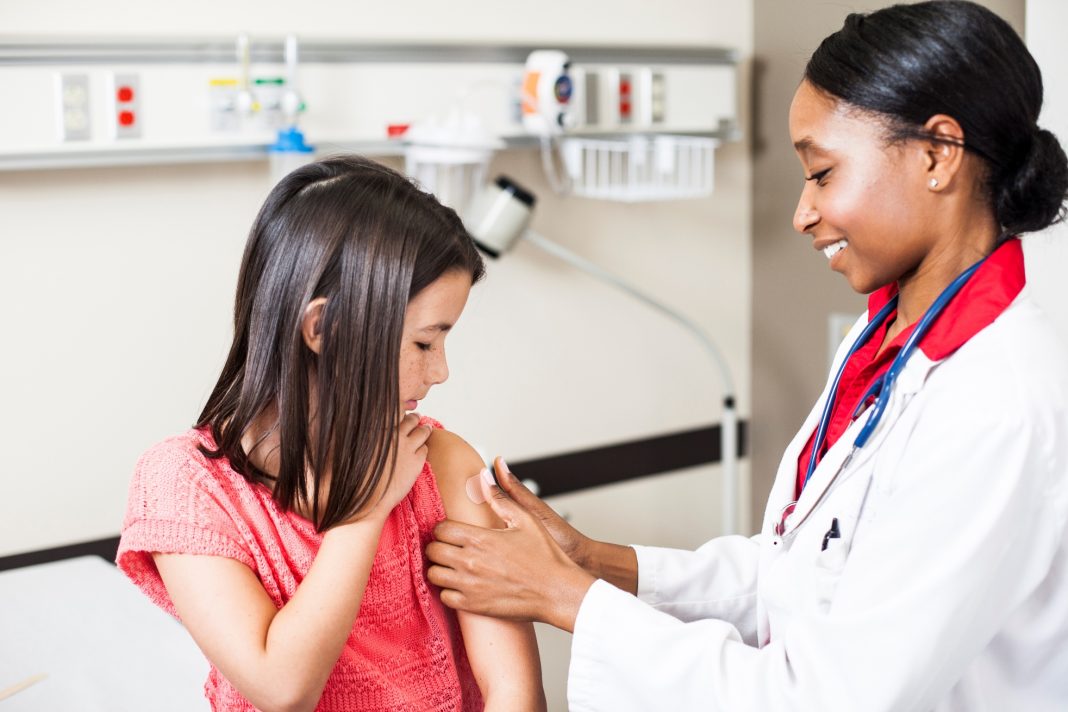With school back in session, children find themselves exposed to more germs than they did over the summer. More germs mean more chances to get sick, so it’s important to consider what you and your family can do to ward off annoying and energy-sapping illnesses.

Dennis and Rosemarie Horner, nurse practitioners at PeaceHealth’s Family Medicine Clinic in Sedro-Woolley, say they almost always see an increase in coughs, colds and minor illnesses among children when school begins, especially those in elementary school. Here are the Horners’ top 10 tips for staying healthy.
#1: Practice Good Hand Hygiene
No matter your age, it’s important to wash your hands with soap and hot water after going to the bathroom, before handling food, whenever your hands are visibly dirty, or when you come in contact with someone who’s sick.
Rosemarie points out that good hand hygiene is more about how well you clean your hands than how often you clean them. A proper hand washing should last as long as it takes you to sing the entire alphabet, she says. Of course, in situations where you don’t have soap and water, hand sanitizer is also helpful.
#2: Cover Your Coughs and Sneezes
Always try to aim your coughs and sneezes at a tissue, handkerchief, or your elbow. Projecting germs into your palms makes it easy to spread them, and sneezing or coughing into the air is even worse. If you’re standing five feet away from someone and openly sneeze in their direction, that’s all it takes for them to be covered in your germs, Rosemarie says. Even if they escape being hit by any visible particles, they’re still covered in your germs. Yuck.
#3: Keep Current on Immunizations

With flu shots about to make their annual appearance, keeping children up-to-date on vaccinations is not something you should slack on.
In addition to annual flu shots, make sure children are current on meningococcal, MMR (Measles, Mumps and Rubella), and tetanus shots. An MMR vaccine should be given to all children around 12- to 15-months of age, and again at 4- to 6-years-old, Rosemarie says. Around 11-years-old, children should also get their HPV (human papillomavirus) vaccine, which can help prevent certain cancers later in life, once they become sexually active adults.
When children forgo vaccines and contract diseases those vaccines are designed to prevent, it often makes those diseases stronger, Rosemarie says, even to a dramatic degree. “Some of these illnesses can kill you,” she says. “People tend to forget that part because we’ve had some of these vaccines for so long. These illnesses might not be deadly to your child, but it could be deadly to the child next to them.”
#4: Always Get Those Checkups
Annual check-ups with a primary care provider are a great thing, even if your children appear healthy. Rosemarie says that providers can look for things that may be early indicators of later problems, such as spine curvatures that can lead to scoliosis.
“We try to catch things early in order to fix it, and in childhood, sometimes that gets pushed away because they’re not coming in or feeling sick,” Rosemarie says.
Many children get checked out upon their annual sports physical, but all children can benefit from an annual exam, she says. Sports physicals are thorough but focus on exercise-specific issues, while wellness exams are a chance to address immunization, nutrition, safety, growth and development and any other health concerns. Sometimes, the two exams can be given at the same time.
#5: Eat a Healthy Diet
Another basic tenet of leading a long and healthy life is eating right; it’s crucial to a child’s growth and well-being. Follow basic steps like taking multivitamins (gummy vitamins are great for kids AND adults!), eating enough fruits and vegetables, and limiting intake of processed and sugary foods and beverages.

#6: Get Enough Sleep
Lack of proper sleep has a negative effect on both your body and brain, weakening your immune defenses and decreasing your mental acuity. Eight hours of restful sleep each night is seen as the gold standard for proper health and daily functioning.
Of course, that’s not always possible every night. Still, strive for as close to eight hours as you can get, and follow a consistent bedtime hygiene routine. Turn off all lights, screens and electronic distractions at a specific time before sleep each night.
“If you’re playing a game, you are not resting,” Rosemarie says. “Everything needs to be turned off.”
And if sleeping in total darkness is a challenge, a small nightlight is okay, too.
#7: Sick? STAY HOME!
Another basic but not always followed rule, it’s simply uncool to go to work or school when you’re sick with more than just the sniffles. If you or your child(ren) have a fever above 100.4 degrees Fahrenheit, you’re better off staying home to rest, for your sake and everyone else’s. Vomiting or diarrhea? Don’t even think about it.
#8: Reset Basic Routines
With no more carefree summer days, getting your children to re-set good habits is important to their health and success. Ensure they finish their homework on time, get their teeth brushed and turn out the lights around the same time every evening. The same goes for their morning routine. Each day your child sticks to the routine, the behavior becomes easier and more automatic to adhere to.
#9: Sometimes Sharing Is NOT Okay
Children love touching everything they can get their hands – and sometimes mouths – on. While sharing is important to teach your children, it’s just as important they know when not to share. In the case of food or drinks their lips have already touched, make sure they know that sharing germs could mean sharing a cold, flu or worse. For avoiding lice, make sure they don’t pass around hats or hairbrushes.

#10: Beat Your Heart Out
Exercise is, of course, one of the healthiest things a human being can do regularly. In general, Rosemarie says at least 30 minutes of cardiovascular activity each day is preferred, but 60 minutes is ideal, even if it’s split up throughout the day. What’s great about exercise is that it’s something kids can do with their friends, but also with their parents! Who’s up for a bike ride?
Following these 10 simple tips can help your whole family stay healthy as we enter not only “cold and flu season” but also the holiday season: No one wants to be sick during the holidays! An ounce of prevention really is worth a pound of cure, so follow Dennis and Rosemarie Horner’s advice. And, if you are feeling run down, a visit to PeaceHealth Family Medicine in Sedro-Woolley can help get you feeling better quickly.




































